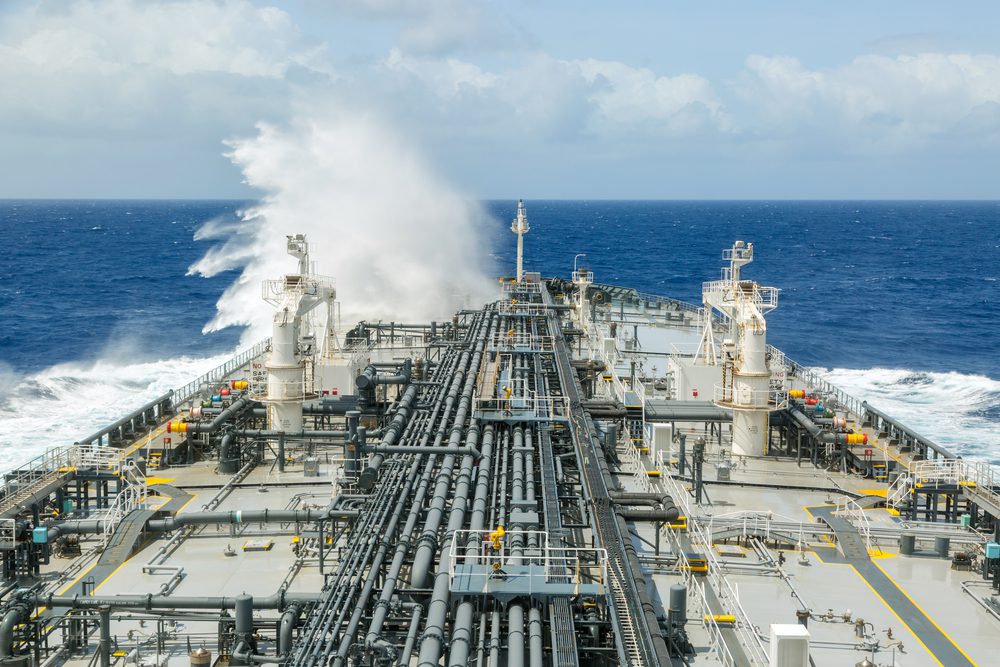Israel’s Strikes on Iran Jolt Tanker Markets, Freight Rates
Israel's Airstrikes Spark Surge in Oil Freight Rates

Israel’s recent airstrikes on Iran have sent shockwaves through global oil markets, causing a significant spike in freight rates and tanker stocks. As traders brace for potential disruptions to oil shipping routes, forward freight agreements for Middle Eastern crude surged by 15% on Friday. The military action, which targeted Iranian nuclear and military facilities, has escalated tensions between the two nations, prompting fears of increased risks in the Strait of Hormuz, a critical chokepoint for global oil transport.
Market Reactions to Escalating Tensions
Following the airstrikes, forward freight agreements for July rose to $12.83 per metric ton, reflecting heightened concerns among traders. Shipowners and brokers reported that actual charter rates have also increased, with many companies opting to withhold their vessels from the region until the situation stabilizes. Anoop Singh, global head of shipping research at Oil Brokerage Ltd., noted that the current environment has created a “risk premium,” leading owners to be more cautious about deploying ships in the Gulf. The threat of conflict in the Middle East is now a significant factor influencing freight rates.
The airstrikes have reignited fears that Iran may attempt to close the Strait of Hormuz, a vital passage for a substantial portion of the world’s oil supply. Although Iran has made similar threats in the past, the likelihood of a prolonged closure remains uncertain. However, the potential for harassment of commercial vessels by Iranian forces has increased, making shipping routes more perilous. Major shipping companies in Japan, including Nippon Yusen KK and Mitsui OSK Lines Ltd., have already advised their vessels to exercise caution in light of the recent developments.
In the stock market, tanker companies saw significant gains, with shares of Cosco Shipping Holdings Co. and China Merchants Energy Shipping Co. rising over 5%. Frontline Plc, a leading tanker operator, experienced a jump of nearly 8% before settling down. Lars Barstad, CEO of Frontline, expressed heightened caution regarding vessel charters from the Middle East, indicating a shift in operational strategies in response to the escalating conflict.
Warnings and Future Implications for Shipping
Prior to the airstrikes, the UK Navy had issued warnings about the potential impact of escalating hostilities on shipping in the Strait of Hormuz. The Joint Maritime Information Center (JMIC) also cautioned about increased risks, including the possibility of missile use around critical maritime chokepoints. They reported that ships’ electronics are being jammed, urging vessel operators to prepare for navigation challenges. Barstad highlighted that past conflicts have led to the organization of shipping “flotillas” under naval escort, a practice that, while ensuring safety, can slow down transit times and increase freight costs.
Currently, approximately 10% of the global very-large crude carrier fleet operates in the Middle East Gulf, with around 20 vessels transiting the Strait of Hormuz daily. Neil Roberts, secretary of the Joint War Committee, noted that while the risk of collateral damage has increased, the current strikes have not targeted marine assets directly. He emphasized the importance of staying informed and adapting to the evolving situation.
While the immediate effects of the airstrikes have been bullish for tanker markets, there are concerns that sustained disruptions could lead to a rise in oil prices, potentially dampening demand. However, ancillary services focused on ensuring safe passage for vessels may see increased business. Jayendu Krishna from Drewry Maritime Services pointed out that the Middle East plays a crucial role in global dry-bulk trade, suggesting that the war-risk premium for shipping routes to and from the region is likely to rise significantly. As the situation unfolds, the maritime industry will need to recalibrate its operations to navigate the complexities of this volatile environment.
